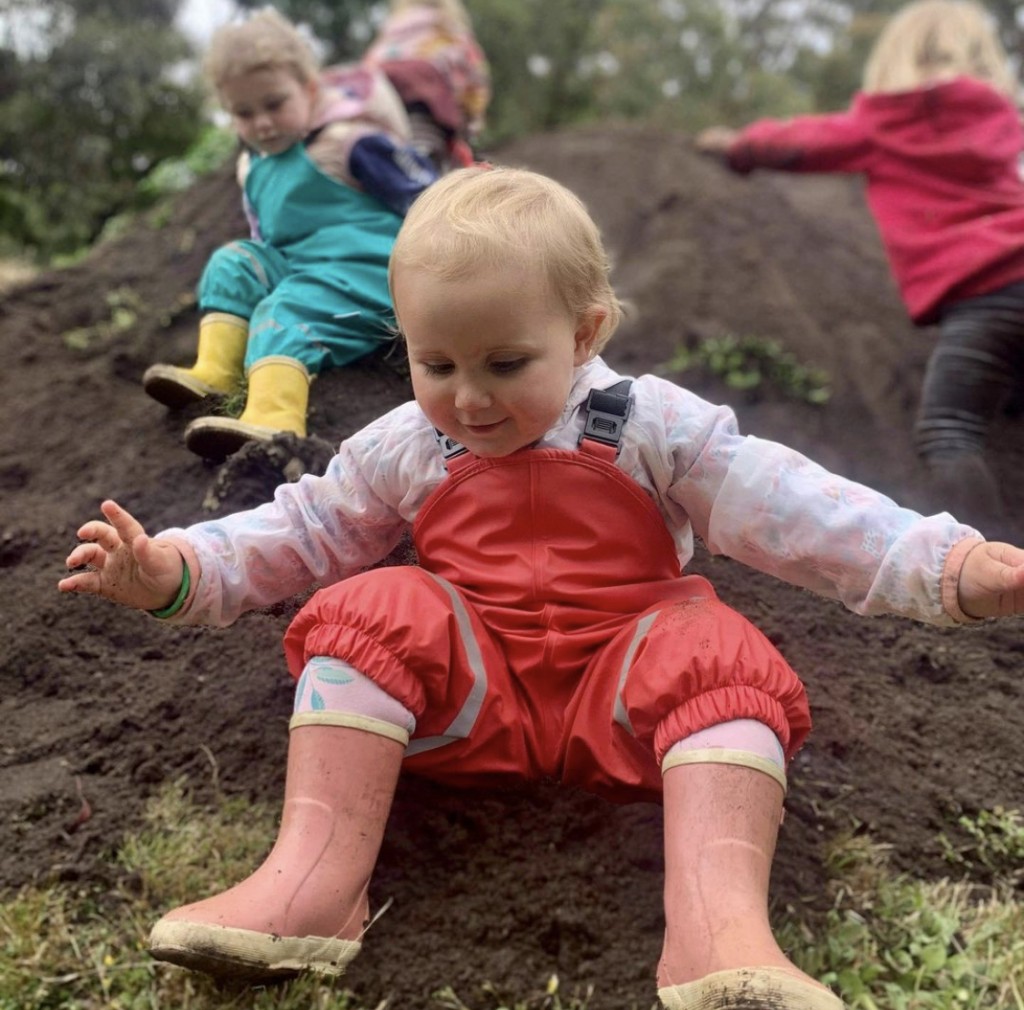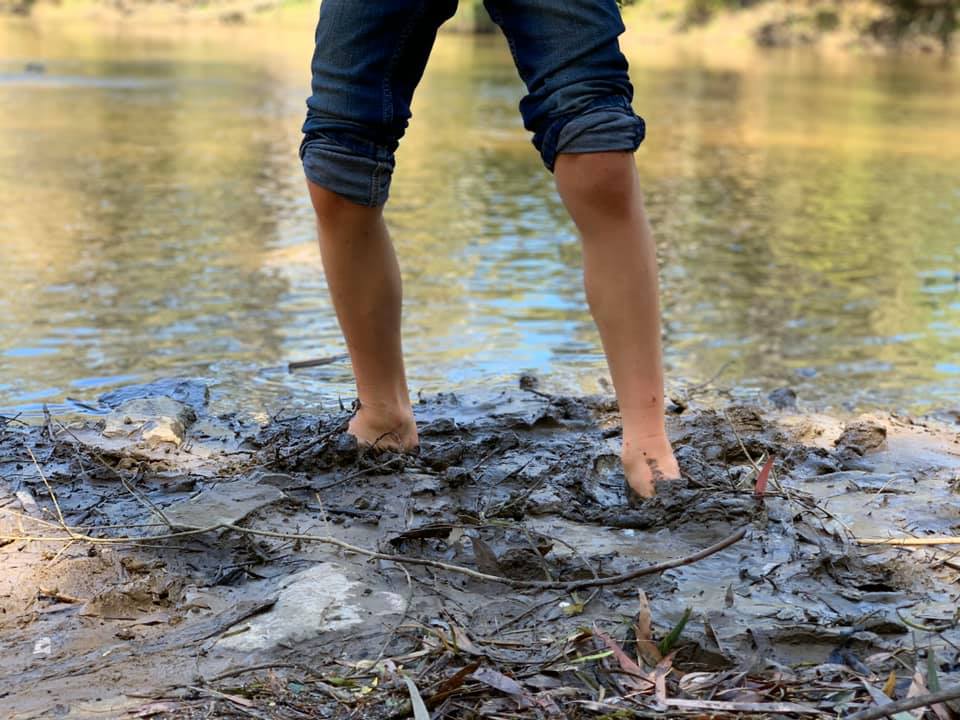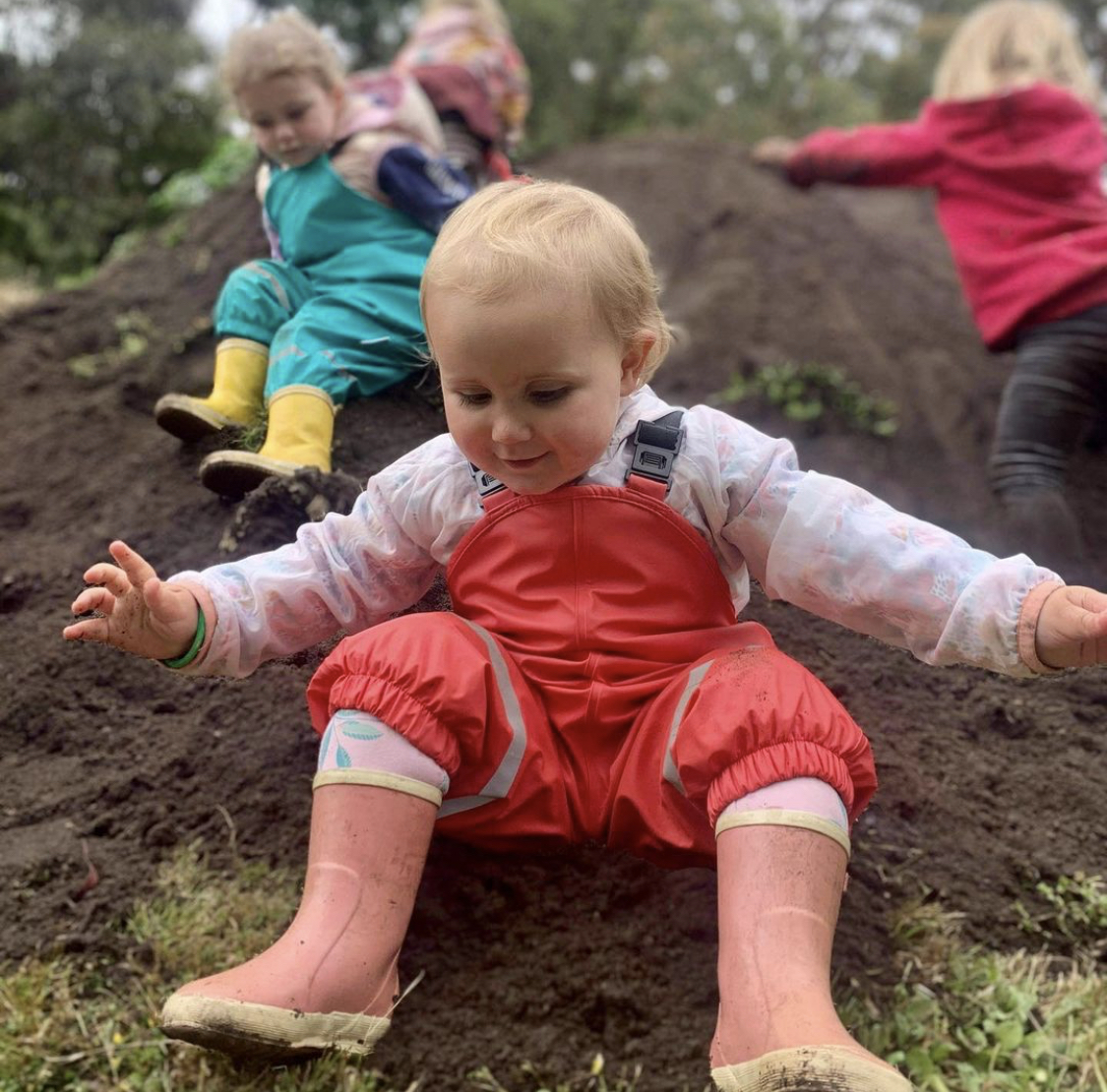Do you remember playing in mud as a child? How the mud felt squished in between your hands or feet and the sounds it made as you jumped in or patted it? The different types of brown colour it could be? The wonderful earthy smell of it? How much fun you had immersing yourself in playing with and in it?
Mud play is a rich sensory experience that children love to immerse themselves in. Seeing the appearance and movement of mud, listening to the sounds made while playing in it, smelling it and particularly the feel of it are ways children’s senses can be stimulated while engaged in muddy play, leading to an increase in brain activity.
Today’s children often do not get the opportunity to play in mud. Regularly there is hesitation from not just them, but their carers, as to getting wet and dirty playing in it. Let us introduce you to ways of playing in it that will ease you in and expand your mud play repertoire in our blog on Mud Play Activities and Ideas. Before you do, take the time to discover the benefits of muddy play here.
Nature play in mud offers lots of health benefits for children. It enables them to move their bodies and strengthen muscles during the physical activity involved. It improves balance as children use different joints and muscles in their feet to stand upright and move around in slippery areas. There is lots of practice for gross and fine motor skills as children play in it. It exposes children to Mycobacterium vaccae, a type of good bacteria found in dirt that builds up the immune system, and causes the release of serotonin, an endorphin that affects mood. This helps children feel happier and more relaxed in both the short- and long-term, reducing stress, improving well being and decreasing their susceptibility to anxiety and depression.
Many learning opportunities also occur when children play in mud. Literacy and numeracy concepts are explored, as children learn to communicate with each other in their play, describe mud, how it moves and amounts they are using in their play. Social skills such as sharing, turn-taking and negotiating are practiced as children play alongside others in the mud. Children learn to assess risks in the multi-faceted area of mud play, brushing up on their problem solving and working out for themselves how to play safely in a supported way.

Mud is an important part of our natural world, and playing in it helps build an awareness of this for children. Children spending time in nature through mud play learn of this importance and take it with them as they grow and get older. Having this foundational understanding develops a love of nature at a young age that also grows as they do.
The medium of mud is so variable that play in it is hugely open-ended. Opportunities for play in mud are limitless and this opens up a child’s imagination and encourages creativity. As children get to play in ways they come up with themselves, their confidence increases as does their independence. Mud play is so much fun, and it is important that children are given lots of time to participate in these types of experiences, for all of the reasons outlined but simply for enjoyment and a good time.

Want to join in on all the fun at bush playgroup? Sign up to our newsletter to get the latest news in your inbox.

